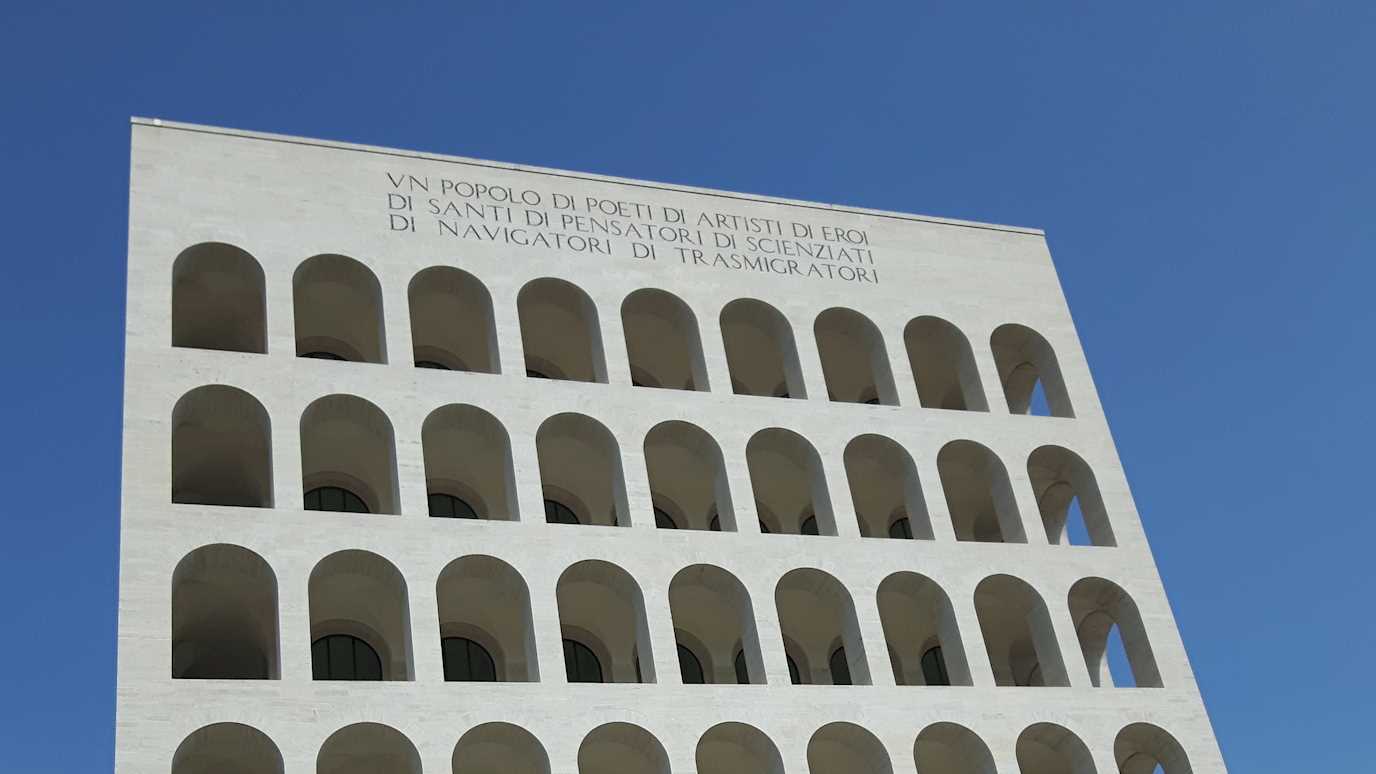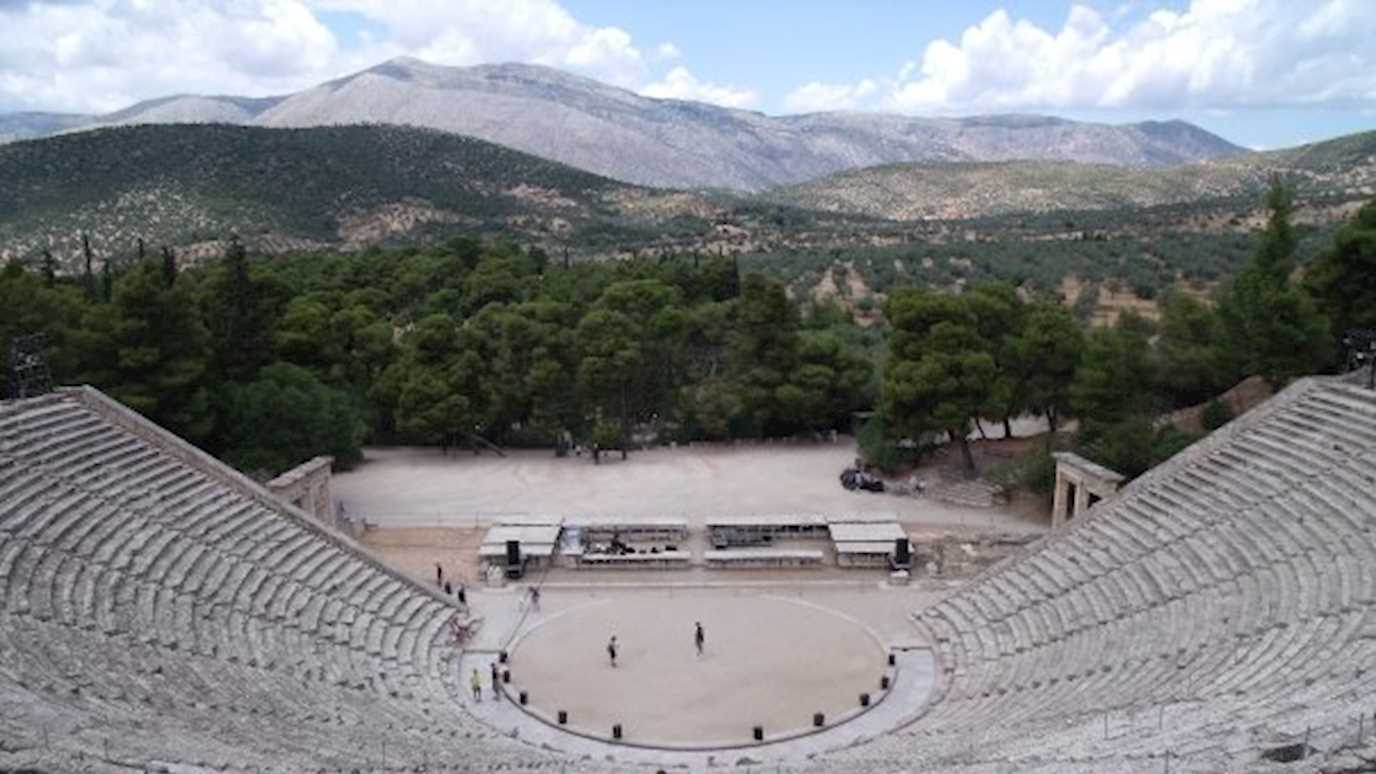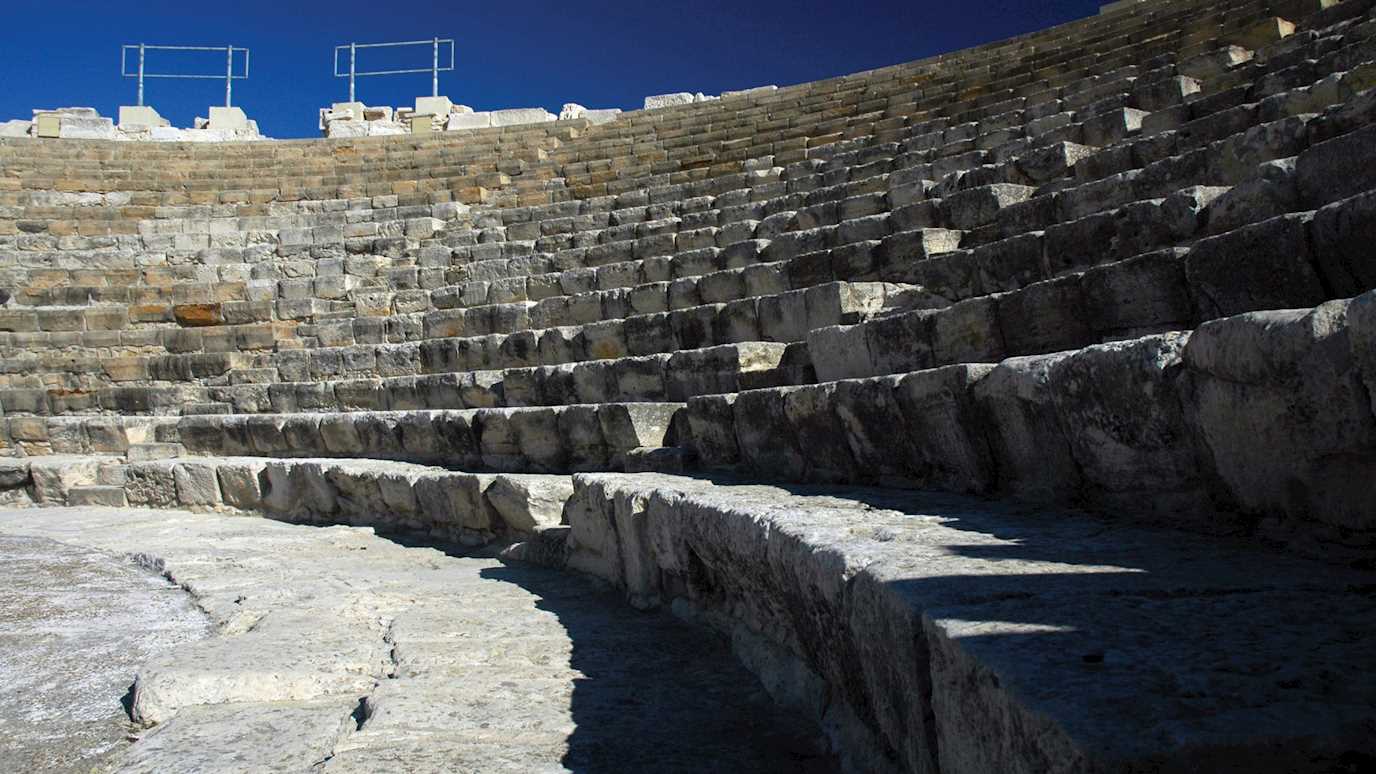The contemporary has always engaged with the Classical; Classics has always engaged with the contemporary.
As Classicists, the contemporary informs our research decisions: what is interesting? What is challenging? As contemporaries, the ancient world provides us with a space for thinking: how did ancient societies deal with this problem? How did ancient people think about these issues? If they were different then from now, why were they different? Studying the ancient world creates a loop between antiquity and us; by understanding more about the past, we understand more about the present.
The departmental theme of 'Contemporary Classics' focuses on the political, from the politics of the body to global politics, and covers work in areas such as voice and empowerment; postcolonialism; gender and feminism; law and advocacy; social engagement and pedagogy.
Themes
Voice and Empowerment
The Classical texts that we have inherited feature an abundance of male authors who enjoyed high positions of political and other authority. Ancient women did write, but only a small fraction of their output has been saved for us through successive acts of conscious or subconscious discrimination. Recent decades have shown an increasing determination by classical scholars to look for a diversity of experience in these male-authored texts. Latin love elegy, in particular, has been a fertile ground for this exploration. Does the female beloved there act and speak only in ways reflecting the dominant perspective of the male lover/poet or can we find in the poetry ‘female’ speech that disrupts the poet/speaker’s perspective? Love elegy is also an apt place to notice other disadvantaged voices and embodied experiences, such those of the household slaves, the non-Roman or the lower-class soldiers and other marginalised figures.
We can find these other voices through a careful and imaginative reading of the texts, paying attention to the disempowered voice in our scholarship. We can also look for it through reception by which later authors engage with the silenced and particularly female voices. Such recuperations offers an engaged perspective on the way in which voices are silenced and authorised and allow an exploration and uncovering of the political structures by which voices are silenced from antiquity to the present.
Efi Spentzou’s first book Readers and Writers in Ovid’s Heroides. Transgressions of Genre and Gender considers gendered ways of writing, establishing a dialogue between Ovid’s ancient narrative and French feminist thought, esp. écriture feminine and arguing for the heroines in Ovid’s collection as anti-establishment writers whose narrations upset established understandings of Greek myth. In recent years, Efi has turned her attention to embodied self-expressions, in general, and the figure of the girl in Ovid’s Metamorphoses, as a figure of untamed difference, with a study of Eurydice, Byblis and Myrrha in dialogue with Bracha Ettinger’s understanding of identity-as-encounter-in-the borderspace. She is at the moment working with 3rd year students on a school workshop provisionally called ‘Discovering your voice with Eurydice’: using her story as a myth about silencing or muted voices, the workshop seeks to provide an opportunity in a supportive environment for school children to (role) play with and experience grappling with silencing and finding voice.
Material Classical heritage, and especially Roman, plays a crucial role in Zena Kamash’s on-going craftivism projects aiming to give voice and a sense of empowerment to displaced members of Middle East and North African communities in Britain and elsewhere. Through enabling access to local heritage, e.g. through object handling, and participation in heritage activities, Zena’s projects, recently bolstered by a British Academy Global Challenge Grant, contribute to an enhanced sense of well-being and empowerment amongst displaced communities.
Postcolonialism
Postcolonialism is the critical stance focused on the way in which our understanding of the world is and was shaped by colonialism. The influence of colonial thinking can be seen in attitudes towards nations, empires, and civilizations. Postcolonialism studies the intersection of these macro-political units and the individual. At that individual level, the colonial is felt in racism and ethnic prejudices. Colonialism took cultural differences and saw them as representing the essence of individuals and groups. Such essentialism divided people into categories and imposed upon them cultural norms and requirements which were seen as central to issues of identity.
Postcolonialism intersects with a range of other issues from gender relations to the distribution of resources to imperial acculturations. Classics has always been part of those colonial narrative from the conscious mirroring of the Roman Empire in modern imperial settings to the discussions of cultural change in imperial contexts. The Classics has been used to make colonial mentalities and oppression seem natural since they are detected in a premodern culture. In our research, we unpick those prejudices and render the attitudes, politics and history of colonialism problematic.
Postcolonialism figures in Richard Alston’s work on imperialism and cultural change and its intellectual traditions, particularly his book The City in Roman and Byzantine Egypt and subsequent articles on housing and cultural values. He has also engaged with the how Romans and moderns thought about Empire in work on Tacitus and the Roman City, Gender and Empire, India and development and modern and ancient theories of freedom under Imperial rule.
Zena Kamash engages through archaeological debates on the ownership of the past, the legacy of colonialism in the Near East and how it has affected our understanding of archaeology and archaeological heritage. She also works on contemporary impacts of colonial power and how heritage is a source for identity and resilience in the face of suffering.
We have had PhD students working on ethnography, particularly the Germans in Tacitus, on cultural change in Egyptian religion and in cultural perceptions of the Roman past and its archaeology. In teaching, the discussion of colonialism features in courses on the ownership of the Roman Past, the Archaeology of Roman Britain, Augustus, and Tacitus and the Making of the Roman Empire.
Gender and Feminism
A feminist and gender-informed approach to research seeks to turn away from traditionally patriarchal forms of knowledge creation and instead prioritises research questions and methodologies which centre women and gender. There is no one fixed way of doing feminist research; rather, the range and flexibility of feminist approaches opens a wide range of possible research projects on texts, objects and historical narratives. The shared goal of this type of research is to break down an understanding of the classical world as mainly a world of authoritative men and the privileged male experience, both as objects of study and as something worth studying.
The history of Classics has often been written as that of men; feminist research in Classics challenges this narrative and seeks to engage with gendered structures of power in ancient societies, and feminist-influenced literary and philosophical approaches to identity. Feminist methodologies of literary analysis broaden the ways we read ancient texts, the range of ancient texts we study and their receptions. Adopting feminist research methodologies leads to fresh and innovative research questions. Our research draws on a range of theoretical tools to foreground issues, questions and themes which are otherwise obscured and undervalued by dominant patriarchal narratives.
Efi Spentzou's work has always had a feminist angle. Moving from teasing out a feminine anti-establishment voice in Ovid's Heroides to a study of gendered power play against a backdrop of political unrest in Roman love elegy, she has also engaged with issues around precarious subjectivities in Latin literature and with the dynamic interrelationship between individual subjectivities and the making of space in Latin texts. More recently she has turned her attention to nomadic and relational identities, with a study of 21st century Eurydices as an exploration of 'lives in the intermezzo' and a consideration of non-hierarchical subjects and irreducible, untamed difference.
In her research, Liz Gloyn foregrounds questions driven by a gender-informed approach to Latin literature and Roman philosophy. Her work on Seneca, particularly her book Seneca and the Ethics of the Family, concentrates on issues of domestic life and familial relationships usually neglected in philosophical analysis. She is currently working on several projects exploring the intersection of space and gender in the Roman theatre. She is also working on a long-term research project on pioneering female Classicists in and outside British academia.
Many other colleagues engage with gender issues. Richard Hawley is preparing a critical introduction to sources on classical gender history intended for teachers and students at school and university levels, drawing on his over 30 years of research and teaching classical gender. Richard Alston works on issues around gender and Roman imperialism, and approaches to the Roman family. Feminist approaches figure in Zena Kamash's engagements with heritage. Lene Rubinstein is exploring the relationship between women and manumission in the ancient Greek world.
Feminist pedagogy underpins many of our undergraduate courses, including our Latin and Greek language teaching and 'Contemporary Approaches to Latin Literature', while courses on 'mainstream' authors such as Virgil and Ovid have an increased emphasis on a broad range of issues around gender and/in politics. Our courses also often focus on issues of core interest to feminist research, in particular Gender in Classical Antiquity. PhD students have worked on contemporary British women writers' engagement with Homeric stereotypes of heroic masculinity, subjectivity as encounter in Statius' Thebaid, liminal identities in Roman love poetry, gender in the Augustan and fascist era, and many other topics with a feminist focus.
Law and Oratory
Few aspects of the Classical tradition are more visibly alive and of more contemporary relevance than the art of persuasion. Across the world, from Japan, Korea, Sri Lanka and South Africa to the nations in South America, the legacy of Roman law and the Greco-Roman forensic rhetorical tradition continues to influence politics and legal procedures to this day. This also means that the shared Classical tradition can be harnessed as a means of enhancing international communication across cultural and political boundaries. Likewise the Greco-Roman rhetorical theorists and practitioners continue to inspire modern speech-writers, strategists and politicians. Similarly, the homiletic traditions of the three major Abrahamic religions have been influenced by the reception of Graeco-Roman rhetoric.
Equally important, the analytical tools and methods developed by Greek and Roman rhetoricians have significant, untapped potential to hone modern citizens’ ability to subject political argumentation to critical analysis. In an era where populism and autocratic tendencies are challenging democratic constitutions on several continents, this kind of civic empowerment is more important than ever.
In the Centre for Oratory and Rhetoric we provide a research-led postgraduate programme, the MRes in Rhetoric, which seeks to equip professionals from different backgrounds with the tools developed in the discipline of Classical rhetoric that will enable them to become more effective communicators. Among our students, past and present, are political communications specialists, healthcare professionals, lawyers and civil servants.
The current research of our members encompasses studies on the resolution of internal and external conflicts including amnesty and international relations. A particular area of strength is the study of rhetorical techniques aiming at evoking emotional responses in the audience in political and forensic oratory. Among these techniques are the strategic selection of historical parallels and the projection of character and authority by the speaker. Character projection in classical oratory has recently been the theme of an international conference jointly organised by Professor Noboru Sato (Kobe, Japan) in collaboration with COR (March 2021). Other COR events include workshops on “Law and Advocacy ancient and modern”, along with a seminar series entitled “Virtual Get Togethers on Rhetoric” (June-July 2021). The series is organised by COR and the International Society for the History of Rhetoric, featuring papers delivered by leading international experts.
A central preoccupation in the ancient debates on rhetoric is its potential for deception and manipulation of the audience, as well as the way in which rhetorical analysis may inoculate audiences against this danger. The rhetorical deployment of evidence as well as appeals to emotions and the cognitive functions that facilitate manipulation and deception are another area that is explored by members of COR.
The classical legacy of forensic oratory is very much in evidence at the International Military Tribunal in Nürnberg (1945-1946), which constitutes the foundation of modern international criminal justice. COR in cooperation with RHUL’s Holocaust Research Institute is developing an international research project on the reception of Classical forensic oratory and legal argumentation as deployed by participants in the proceedings. Building on two successful interdisciplinary workshops (2017, 2018), we are exploring the extent to which the classical rhetorical tradition informed the rhetorical strategies not only of the US, British, French and Soviet prosecution teams, but also the defence teams acting for the German and Austrian defendants. The ultimate aim of our project is to demonstrate the potential of the enduring shared classical rhetorical heritage for facilitating cross-cultural communication in the context of international criminal justice.
COR works closely with the International Society for the History of Rhetoric, including holding joint events, such as the 2022 Summer series on Rhetoric.
Social Engagement, Vulnerability, and Well Being
Engaging with contemporary societal questions is vital for the discipline of Classics, ensuring that we bring understandings and receptions of the past to bear on contemporary questions, priorities and needs. Zena Kamash tackles these issues directly through her projects that focus on the ways in which engaging with heritage might be beneficial to social, communal and individual wellbeing, especially for people who have experienced trauma through conflict. In her British Academy-funded project, Zena Kamash is working in collaboration with psychologists and partners in Iraq to understand more deeply how crafting, heritage and wellbeing are connected in contemporary Iraq.
Another strand of Zena Kamash’s work looks at other kinds of vulnerabilities, in particular those experienced in the discipline of Classics by people from Black and Global Majority communities. She gave a keynote lecture on ‘Decolonising Roman Archaeology’ at the Theoretical Roman Archaeology conference in 2019, in which she presented data relating to conferences and teaching in Roman Archaeology, suggesting concrete actions for rebalancing, widening and diversifying ways the discipline. These data have fed directly into the Council of University Classical Departments (CUCD) ‘Equality and Diversity in Classics Report 2020’ and will be published in the Theoretical Roman Archaeology Journal. Zena Kamash also sits on the CUCD EDI committee.
Thinking about these issues in the past, Lene Rubinstein has been developing insights into orphans and the elderly. Since 2018, she has been working on coping strategies of elderly people, especially women, in the Hellenistic world. She has presented papers on this theme at Oxford (January 2018), Yale (May 2018) and the British Epigraphical Society (November 2018).
Pedagogy
All Department staff are actively involved in teaching which is informed by current pedagogical theory and best practice, with many being Fellows or Senior Fellows of the Higher Education Academy. Many established staff and research students have won individual and team awards and commendations for teaching innovation at university level and have disseminated their innovations successfully within the university and the wider HE sector, both nationally and internationally via online pedagogical resources (e.g. blogs, articles in pedagogical journals, and video collections). Our innovative pedagogical practice has strengths in exploring digital learning (for e.g. language learning), embedding transferable skills in the curriculum, championing diversity, and engaging collaboratively in curriculum development and knowledge exchange with external organisations such as museums, archives, and specialist public sector research centres.
























